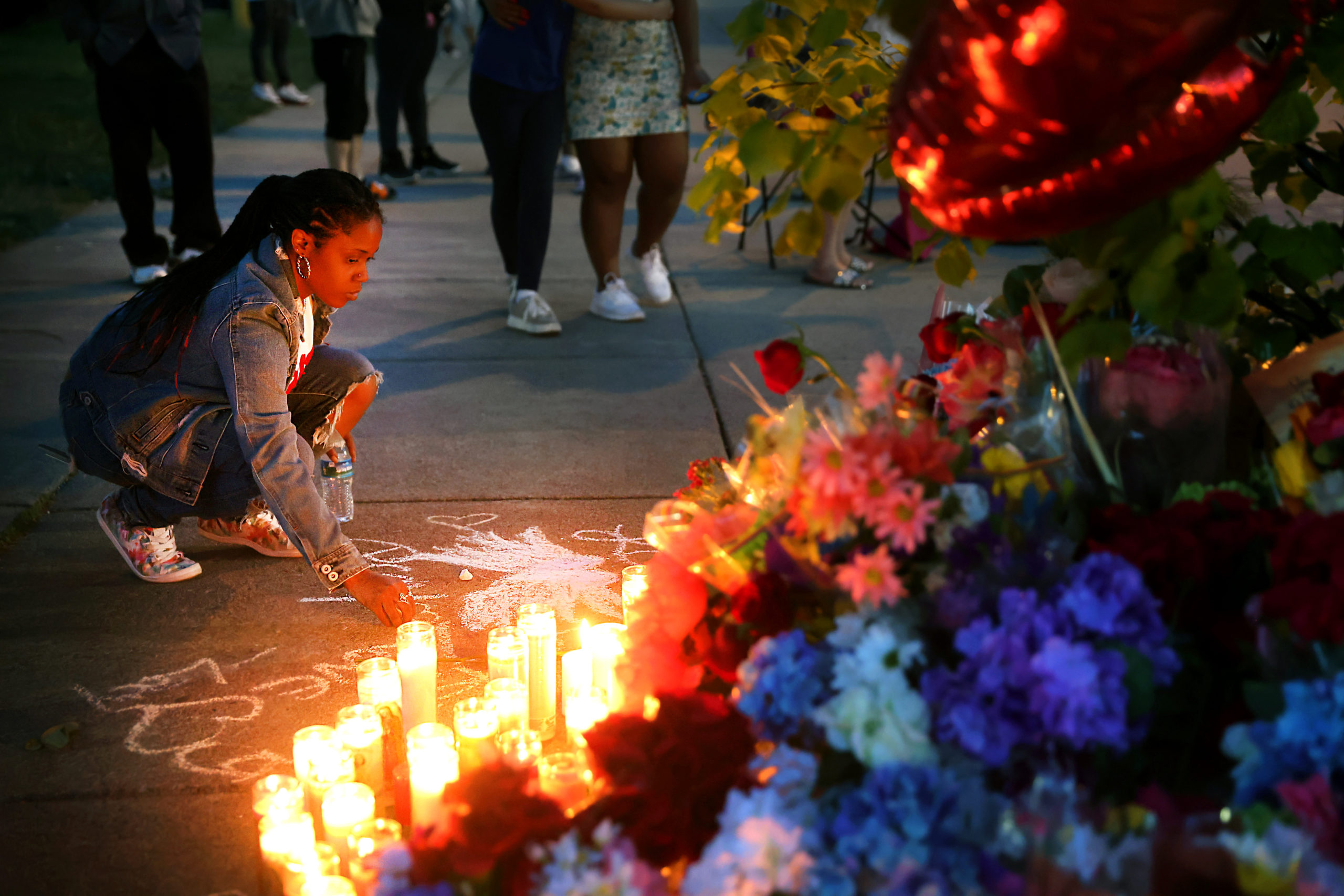What explains this disproportionate representation of black Americans? Taken in isolation, the tragedies in Minneapolis and Buffalo appear to suggest that answer lies in the behaviour of racist police officers and white supremacists. Given the nature of the atrocities, perhaps this conclusion is inevitable. What happened in Buffalo, for instance, can only be described as horrific: the cold, calculating shooting; the loss of life; the heinous views of the suspected shooter. How can we view such an atrocity and not let it overwhelm our judgement? How can we not conclude that such evil merits nothing sort of societal change?
Yet if the past two years have taught us anything, it’s that monocausal explanations are almost always misguided and, as a consequence, almost always ending up harming the vulnerable. As the Black Lives Matter movement mobilised following the murder of George Floyd, America descended into anarchy, fuelled by riots and slogans about systemic racism. When activists demanded that police departments be defunded, local stations were not exactly closed down, but they were intimidated to the point that many stopped serving in black neighbourhoods. The consequences of this swiftly became evident: in the same year that BLM fever seized the country, at least 8,600 black lives were lost to homicide, an increase of more than 1,000 on the year before. Thrown into a frenzy by their overzealous conviction that white racism is the root cause of all evil, BLM turned a blind eye to the large number of black Americans who were being killed, or who found themselves forced to live in neighbourhoods terrorised by gangs.
There were no protests or demands for meaningful policies to make black neighbourhoods safer. Rather, the movement’s organisers busied themselves by throwing parties at their $6 million Los Angeles mansion and deciding how to spend the $90 million received in donations. Why save black lives when you can while away your time spending more than $37 million on grants, real estate, consultants, and other expenses?
Still, at least that information is now available. Patrisse Cullors, a BLM co-founder, recently dismissed calls to make public BLM’s finances, describing the prospect of filling out an IRS Form 990 as “triggering” and “deeply unsafe”. Of course, it’s all too easy to dismiss her disingenuous victim fantasies as farce. But it is not just personal accountability that is missing here: ideological scrutiny is also effectively avoided, as critics are inevitably accused of being racist. Take, for instance, Roland Fryer, the celebrated African American economist at Harvard. He debunked the persistent narrative that the police kill more black than white Americans. For that, as well as his criticisms of education policy, he was effectively cancelled by his university. His research was deemed traitorous — and looking at the response to the Buffalo shooting from black activists and Leftist politicians, it is clear a narrative that trumpets the suffocating impact of racism still prevails.

 unherd.com
unherd.com
My .02 Inner City Black Culture is holding back Blacks ... no one cares as long as black are killing blacks, but let a white person be involved, cities burn
Yet if the past two years have taught us anything, it’s that monocausal explanations are almost always misguided and, as a consequence, almost always ending up harming the vulnerable. As the Black Lives Matter movement mobilised following the murder of George Floyd, America descended into anarchy, fuelled by riots and slogans about systemic racism. When activists demanded that police departments be defunded, local stations were not exactly closed down, but they were intimidated to the point that many stopped serving in black neighbourhoods. The consequences of this swiftly became evident: in the same year that BLM fever seized the country, at least 8,600 black lives were lost to homicide, an increase of more than 1,000 on the year before. Thrown into a frenzy by their overzealous conviction that white racism is the root cause of all evil, BLM turned a blind eye to the large number of black Americans who were being killed, or who found themselves forced to live in neighbourhoods terrorised by gangs.
There were no protests or demands for meaningful policies to make black neighbourhoods safer. Rather, the movement’s organisers busied themselves by throwing parties at their $6 million Los Angeles mansion and deciding how to spend the $90 million received in donations. Why save black lives when you can while away your time spending more than $37 million on grants, real estate, consultants, and other expenses?
Still, at least that information is now available. Patrisse Cullors, a BLM co-founder, recently dismissed calls to make public BLM’s finances, describing the prospect of filling out an IRS Form 990 as “triggering” and “deeply unsafe”. Of course, it’s all too easy to dismiss her disingenuous victim fantasies as farce. But it is not just personal accountability that is missing here: ideological scrutiny is also effectively avoided, as critics are inevitably accused of being racist. Take, for instance, Roland Fryer, the celebrated African American economist at Harvard. He debunked the persistent narrative that the police kill more black than white Americans. For that, as well as his criticisms of education policy, he was effectively cancelled by his university. His research was deemed traitorous — and looking at the response to the Buffalo shooting from black activists and Leftist politicians, it is clear a narrative that trumpets the suffocating impact of racism still prevails.

Buffalo and the myth of racist America
Democrats want to create another George Floyd moment
My .02 Inner City Black Culture is holding back Blacks ... no one cares as long as black are killing blacks, but let a white person be involved, cities burn
Last edited:
